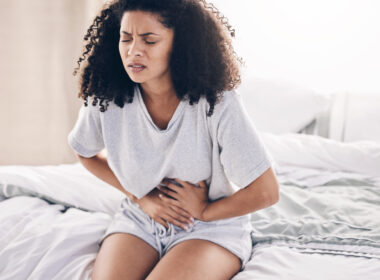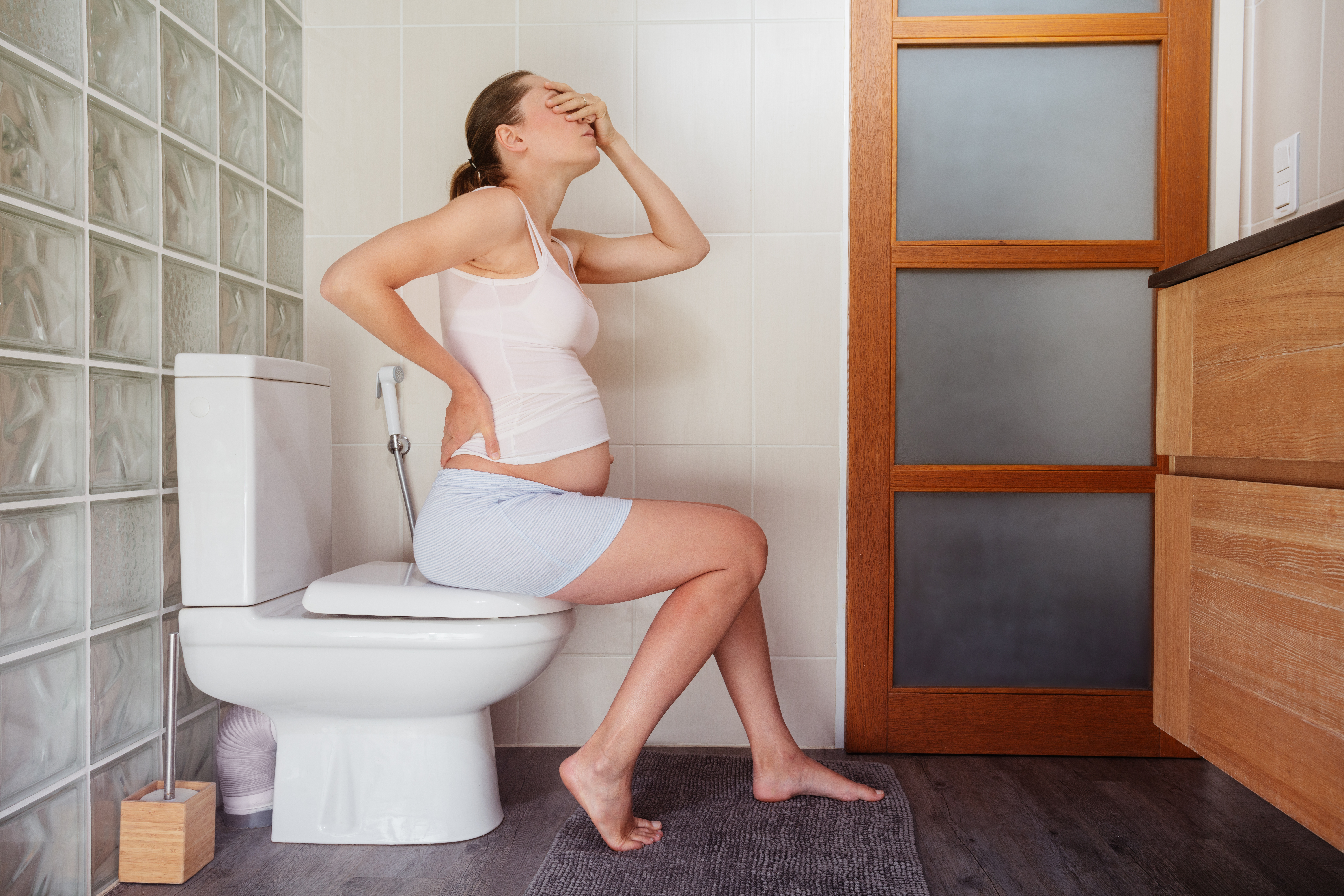A 2021 Elle magazine article answered the rhetorical question “Do you need your period?” with a cheery and resounding negative, even quoting a medical doctor as saying “If you’re not trying to make an embryo, there’s no point to bleeding.” The article specifically emphasized the use of continuous hormonal contraception, i.e. birth control without placebo pills or any other “break” from synthetic hormone consumption that would typically lead to a withdrawal bleed (which is different from a period—more on this in a bit). The article suggested that menstrual suppression through continuous use of hormonal contraception might benefit an impressively diverse group of women, including “women suffering from…asthma, rheumatoid arthritis, endometriosis, diabetes, polycystic ovary syndrome, anemia, seizure disorders, and depression, among other mental health issues.” In other words, it’s not only ok to continuously suppress your period, it might be good for you to do so. Is that true? Is it safe to stop your period with birth control?
What the Elle article got right
It is true that the withdrawal bleed women typically experience during the placebo week of the Pill has no real benefit for the woman’s body. In contrast, true menstrual bleeding that occurs in a naturally cycling woman is an indicator of health and follows ovulation, a hormonal event with whole-body benefits, as we covered at length in our Reasons Women Need Periods series. Since ovulation positively impacts bone, breast, brain, heart, and immune health, what might the health implications be of stopping ovulation (in order to not have a period) with continuous hormonal contraception?
Here, we delve into the reasons why women might intentionally seek to stop their periods entirely. We explain why the American College of Obstetricians and Gynecologists’ (ACOG) assurances of the safety of continuous menstrual suppression via hormonal contraception may be premature. We highlight the reality that complete cessation of bleeding with any contraceptive drug or device is no guarantee. And, we emphasize how hormonal birth control fails to actually fix the reproductive problems that make many women want to stop their periods in the first place.
Why might women want to stop their periods indefinitely?
We previously covered the social reasons women might try to stop their periods for a night or a week (and how well attempts to do that work out), such as while on vacation or on a honeymoon. Other women may desire or be encouraged to stop their periods indefinitely for health reasons. These might include painful periods, menstrual migraines, or anemia. ACOG’s 2022 Clinical Consensus document, General Approaches to Medical Management of Menstrual Suppression, notes that women in special circumstances, such as female athletes, female members of the military, and homeless women, may also be encouraged to cease cycling and stop their periods for a variety of reasons. (Troublingly, however, homeless women, in particular, may lack access to adequate follow-up healthcare to address complications that arise from contraceptive use, which ACOG’s statement neglects to mention.)
In a 2010 research study summarizing the evolution of the Pill over the past several decades and analyzing the pregnancy prevention efficacy of a then-new, extended-use oral contraceptive without placebo pills, the author noted, “extended cycle pills provide significant health benefits. Reducing the numbers of scheduled bleeding episodes results in less blood loss. This can be very important to women with sickle cell anemia, fibroids, bleeding distresses or conditions that require use of medications that interfere with vitamin K synthesis” [1]. But the author didn’t acknowledge that, as with any medication, use of hormonal birth control comes with health trade-offs and risks.
Who is menstrual suppression helping?
ACOG also addresses women with physical or cognitive disabilities, as well as female prisoners, as women who might desire menstrual suppression. Troublingly, it’s unclear whether “menstrual suppression” for women in these groups is primarily for the benefit of the women themselves or for the ease and convenience of their caregivers, guards, or other staff. ACOG wrote in their clinical consensus document, General Approaches to Medical Management of Menstrual Suppression, “Menstrual suppression is a safe and viable option for patients with physical or cognitive disabilities or both who need or want to have fewer or no menses.”
Additionally, ACOG wrote “menstruating individuals in jail or prison report difficulty accessing menstrual products and clean undergarments; also, systems may be set up to provide or deny products to incarcerated people as a reward or punishment 76.” ACOG doesn’t address the pertinent question of whether it is ethically acceptable to provide or deny menstrual care products to female prisoners as a form of reward or punishment, or if simply failing to provide for their menstrual product needs is acceptable (we at Natural Womanhood would emphatically state that neither is ethical nor acceptable). Instead, ACOG appears to “blame the victim” by implying that female prisoners should stop their periods indefinitely as a “solution” to unjust treatment and substandard care.
Assurances that it’s safe to stop your period indefinitely may be premature
In its clinical consensus statement, ACOG wrote “Obstetrician–gynecologists can reassure patients and caregivers that hormonal methods used to suppress menses do not affect future fertility and do not increase the risk of cancer. In fact, continuous use of combined oral contraceptive pills (OCPs) decreases the risk of certain cancers. Reassurance can be provided that a withdrawal bleed during the placebo week is a historic holdover from the development of the combined OCP to mimic a more ‘natural’ cycle and is not necessary for health 2.” As we stated above, ACOG is right that withdrawal bleeds triggered by placebo pills serve no physiological purpose.
But ACOG’s blithe dismissal of safety concerns about impacts on future fertility and/or cancer risk in women who use continuous contraception appears premature (if not downright misleading) given that all the studies it cites to make its safety claims followed participants for just one year. One year is hardly a sufficient amount of time to evaluate whether, for instance, cancer risk is increased, since cancer diagnoses often come years down the road. Here and here, we’ve previously covered the nuanced connection between hormonal birth control use and cancer risk at length, explaining why the decreased risk of “certain cancers” from taking the Pill, as ACOG mentions, doesn’t necessarily outweigh the increased risk of other more prevalent and/or more deadly cancers (primarily that of breast cancer).
Concerns about menstrual suppression in young women and female athletes
Also surprising is ACOG’s assertion that menstrual suppression or stopping your period indefinitely is safe for female adolescents in particular, despite a paucity of research on this age group. In an article about the ACOG document, a pediatric and adolescent gynecologist opined that ‘there is no biological reason why hormones act differently in someone just getting their period compared with a person who has had it for years.’ But from our previous 2-part series on what’s normal and what’s not regarding teens and irregular cycles, we noted that there are real differences between how teens ovulate at first, versus how their cycles normalize years down the road.
We further know that teens and college-age women are in their peak bone mass development years, as we covered in our Reasons Women Need Periods piece on the bone health benefits of ovulation, whereas Depo-Provera in particular is known to negatively impact bone mineral density. We also know that a female athlete losing her period is a warning sign that she may be undereating, overexercising, or a combination of the two, putting her at risk for injury. But such a young woman cannot know if she’s lost her period if she’s on contraception. For these reasons, we believe it’s premature to reassure girls and young women that it’s safe to stop their periods with the Pill or other forms of birth control.
Breakthrough bleeding is still common with continuous contraceptive use
Historically, birth control pills contained higher doses of estrogen, which were accompanied by higher risks of blood clots, stroke, and heart attack. Synthetic estrogen dosage in hormonal contraceptives has decreased over time, such that modern doses are equivalent to less than 20% of what they were when the Pill was first put on the market in the 1960s (imagine the havoc wreaked on women’s bodies by 5x higher dose of synthetic hormones!) [1]. However, with the decreased estrogen dose in modern formulations of birth control, breakthrough bleeding has become more common.
Surprisingly, breakthrough bleeding is actually a reason many women stop using their birth control method altogether. According to ACOG, “ In a retrospective cohort study of 300 patients, up to 46% cited breakthrough bleeding as the most common reason for discontinuation or considering changing or changing methods 77”. ACOG freely acknowledges that some women will continue to experience breakthrough bleeding regardless of the method— and sometimes even of the duration—of contraception used. They encourage healthcare providers to promote “realistic expectations” in their patients. Yet, this doesn’t jive with their advocacy for continuous menstrual suppression.
Women deserve answers as to why they are experiencing debilitating period symptoms, but they won’t get them from HBC
Hormonal birth control use also fails to get to the heart of why women experience many of the symptoms that lead them to want to stop their periods altogether. In the 2010 research study mentioned above, the author wrote “With menses women suffer back pain, abdominal pain, bloating, constipation, headache, breast tenderness, irritability, depressed mood, fatigue, nausea and even vomiting. These complaints are decreased with an extended-cycle oral contraceptive regimen.35 Complaints about headache, mood changes and pelvic pain were clearly diminished with extended-cycle use of a drospirenone-containing pill compared to its cyclic use 36” [1].
The author further wrote, “Estimates are that nearly one-third of the 2.5 million US women with menstrual disorders report spending an average of 9.6 days in bed each year because of these problems.37”
Common doesn’t equal normal
But debilitating period problems are not normal, however common they may be. Hormonal birth control and other forms of contraception do not and cannot solve these problems. Instead they simply Band-Aid over them. After stopping contraception, the problems typically come right back (as we see with the phenomenon of post-pill amenorrhea). The author’s comments would appear to corroborate this statement, since she noted that women tended to experience recurrence of such symptoms during the placebo week of the Pill.
Women absolutely deserve answers to why they are experiencing debilitating period pain, headaches, mood changes, etc. They deserve comprehensive work-ups to establish root causes, and effective interventions to restore their health, as pursued by healthcare providers trained in restorative reproductive medicine (RRM).
So, bottom line: Is it safe to stop your period indefinitely with birth control?
Menstrual suppression due to reproductive health symptoms does not solve a woman’s problems. And, it robs her of the health benefits of natural, regular ovulation that RRM diligently works to restore. Certainly, women with underlying health conditions that predispose them to heavy bleeding, such as sickle cell anemia, may desire to stop their periods (to the extent reasonably possible). But they should know that doing so comes with additional risks to their health.
There are good reasons to believe it may not be safe to stop your period indefinitely, for teens and young women especially. ACOG’s assurances of safety in this population as well as for other women may well be premature. Homeless women especially may lack access to follow-up healthcare needed to address complications that arise from contraceptive use. Finally, stopping the periods of women who are cognitively or physically disabled or who are imprisoned begs the question of just who is being helped—the women themselves, or those caring for them?
References:
[1] Nelson A. New low-dose, extended-cycle pills with levonorgestrel and ethinyl estradiol: an evolutionary step in birth control. Int J Womens Health. 2010 Aug 9;2:99-106. doi: 10.2147/ijwh.s4886. PMID: 21072303; PMCID: PMC2971737.Additional Reading:
The internet is rife with ways to stop your period for a night. Do any work—and are they safe?
Does birth control prevent—or cause—cancer?
How birth control, pregnancy, and abortion each impact a woman’s breast cancer risk
Teens and irregular periods: What’s normal—and what’s not (Part I)
Teens and irregular periods: What’s normal—and what’s not (Part II)







